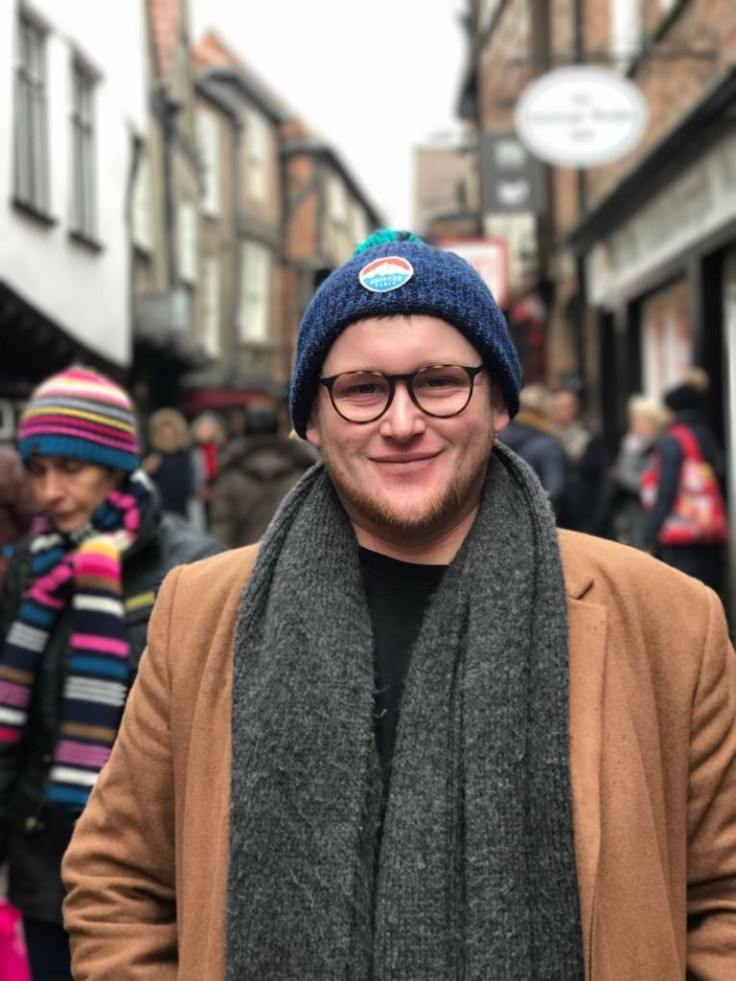'Being gay is a deceit of Satan': Petition to ban 'gay cure therapies' reaches 10,000 signatures
KEY POINTS
- Journalist Josh Parry exposed the practises of the Mountain of Fire and Miracles Ministry in Liverpool.
- Parry came out to his parents weeks before his report made international headlines.
- He is now demanding that the government takes action against so-called 'deliverance therapies'.
When Josh Parry first visited the Mountain of Fire and Miracles Ministries church in Liverpool, he was struck by how welcoming the other parishioners were. It wasn't until he enrolled for "gay cure therapy" there that he was faced with the dangerous practises going on at the institution in a small brick building in Anfield.
"Once I underwent the private 'counselling' session I was told that being gay is a 'deceit of Satan' and that gay and trans people are simply 'chasing the celebrity'," Parry tells IBTimes UK. "The pastor also suggested that being gay is a biological fault and that it is unnatural."
The pastor, known as Brother Michael, advised Parry to starve himself for three days in an example of a so-called "deliverance therapy" that has no medical basis. Electric shock treatment and nausea aversion therapy, where a person is trained to associate homosexuality with an unpleasant experience such as vomiting, have been prescribed at other institutions with no links to medically qualified professionals.
Luckily for Parry, he was undercover at the church as part of an undercover investigation for the Liverpool Echo which has since made international headlines. In recent days, a petition he launched to pressure the government to change laws on medically unproven "gay cures" has garnered over 10,000 signatures, meaning that the government must now respond to it.
Dr Desmond Sanusi, the church's pastor, later told Parry that the church doesn't discriminate against people and has "been running for over 20 years and nobody has dropped dead". IBTimes UK has contacted Mountain of Fire and Miracles Ministries for a comment and is awaiting a response.
Parry knows all too well that this sort of therapy can easily snare the most vulnerable, who feel at odds with their sexuality. Just a couple of years ago, Parry says he was struggling to come to terms with the fact that he is gay.

"In fact, I only 'came out' to my parents a few weeks ahead of my investigation being published because I didn't want them to read it for the first time in the Echo," he says, adding that he was relieved when it "changed absolutely nothing."
"But there are no doubt other people whose parents aren't as accepting - and sometimes this can be one of the main reasons people undertake these so-called therapies. Either because their parents directly force them into it, or because they know their parents would likely reject them and undergo it in a desperate attempt to become straight.
"If I was there as a vulnerable person and not in my capacity as a journalist I feel what I was told would be very damaging. I'm a confident person, I'm in a happy and stable relationship with another man and I have the confidence to know that my sexuality cannot - and more importantly should not - be changed.
"At the time in my life when I was struggling, if someone had have said these things to me, I think it would have set me back years in terms of coming to terms with my sexuality and I honestly don't know if I'd be as 'out' and happy as I am today."
Parry's demands to the government mirror those of the Church of England, whose General Synod overwhelmingly backed a motion calling for "gay cures" to be banned in July. The vote was backed by the Royal College of GPs and the UK Council for Psychotherapy. At the time, 33,000 people signed a separate petition urging the government to outlaw practises, The Independent reported.
Despite this, a quick search online with the right keywords will draw up outlets and DIY "gay cure" literature, warns Parry.
"The whole of the medical establishment agrees they do not work, and they are dangerous – and therefore I think the clearest way to communicate that message to the vulnerable people that undergo these so-called therapies is by banning them," he says, adding while this wont be a "silver bullet to end them once and for all", it is nevertheless an important starting point.
Citing a recent Stonewall Unhealthy Attitudes survey, which showed that one in ten healthcare professionals had overheard colleagues sharing the belief that sexuality is something which can be cured or changed, Parry believes that a ban would kick-start a process of re-education "on every level" of society from religious readers and health professionals to members of the public.
Parry concludes: "Sexuality-affirming therapy should be offered in place of conversion therapy – in order to help people come to terms with their sexuality rather than trying to 'pray the gay away'."






















